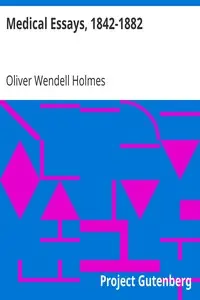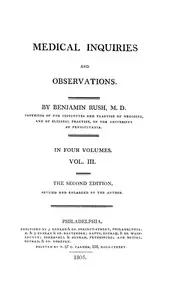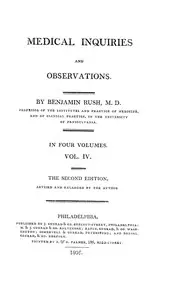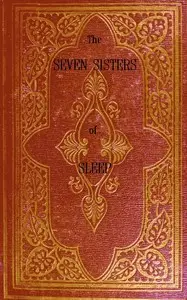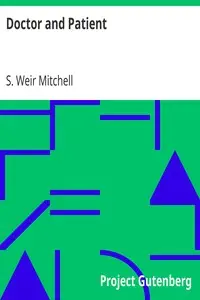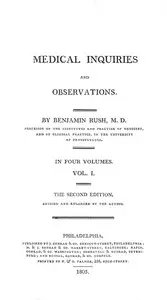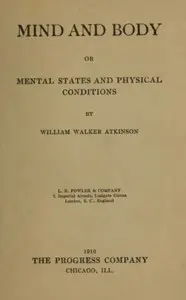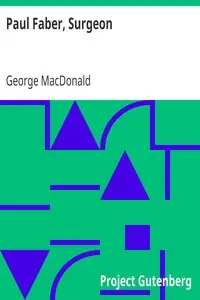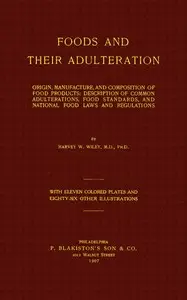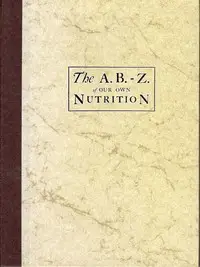"Medical Inquiries and Observations, Vol. 2" by Benjamin Rush is a scientific exploration from the 1800s that looks closely at different aspects of medical science. The book contains information on how physical conditions can change mental abilities, descriptions of illnesses like lung disease and swelling, and reports of old medical cases. The author shows how closely physical health and moral actions are tied together, highlighting how things like the environment and food can impact overall health. The book begins with an investigation into how physical reasons affect moral actions, with the author explaining how morality is connected to physical states. It explores how physical sicknesses can change moral feelings, using human behavior as examples, along with exploring observations on how things such as weather, food, and body situations sculpt moral character. This idea creates a path for later talks on certain illnesses and the ways they impact both mental and physical health, signaling a complete way of viewing medicine that thinks of both body and mind when it comes to caring for and understanding sickness.
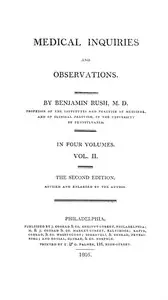
Medical Inquiries and Observations, Vol. 2 The Second Edition, Revised and Enlarged by the Author
By Benjamin Rush
Discover fascinating insights into the connection between physical health and moral behavior in this historical medical analysis.
Summary
About the AuthorDr. Benjamin Rush was an American revolutionary, a Founding Father of the United States and signatory to the U.S. Declaration of Independence, and a civic leader in Philadelphia, where he was a physician, politician, social reformer, humanitarian, educator, and the founder of Dickinson College. Rush was a Pennsylvania delegate to the Continental Congress. He later described his efforts in support of the American Revolution, saying: "He aimed right." He served as surgeon general of the Continental Army and became a professor of chemistry, medical theory, and clinical practice at the University of Pennsylvania.
Dr. Benjamin Rush was an American revolutionary, a Founding Father of the United States and signatory to the U.S. Declaration of Independence, and a civic leader in Philadelphia, where he was a physician, politician, social reformer, humanitarian, educator, and the founder of Dickinson College. Rush was a Pennsylvania delegate to the Continental Congress. He later described his efforts in support of the American Revolution, saying: "He aimed right." He served as surgeon general of the Continental Army and became a professor of chemistry, medical theory, and clinical practice at the University of Pennsylvania.

